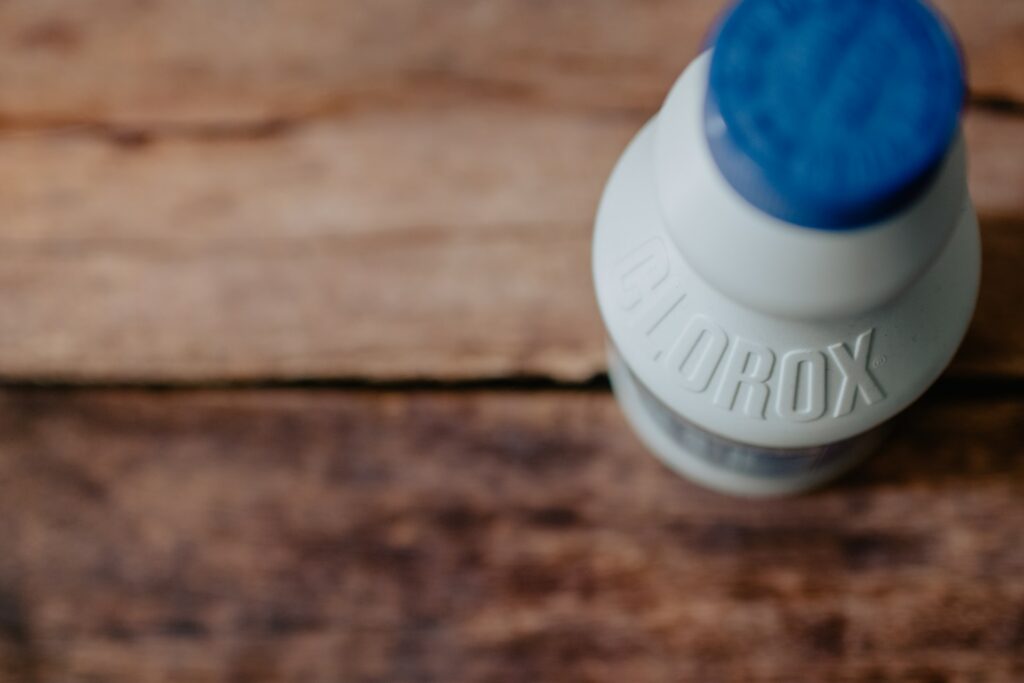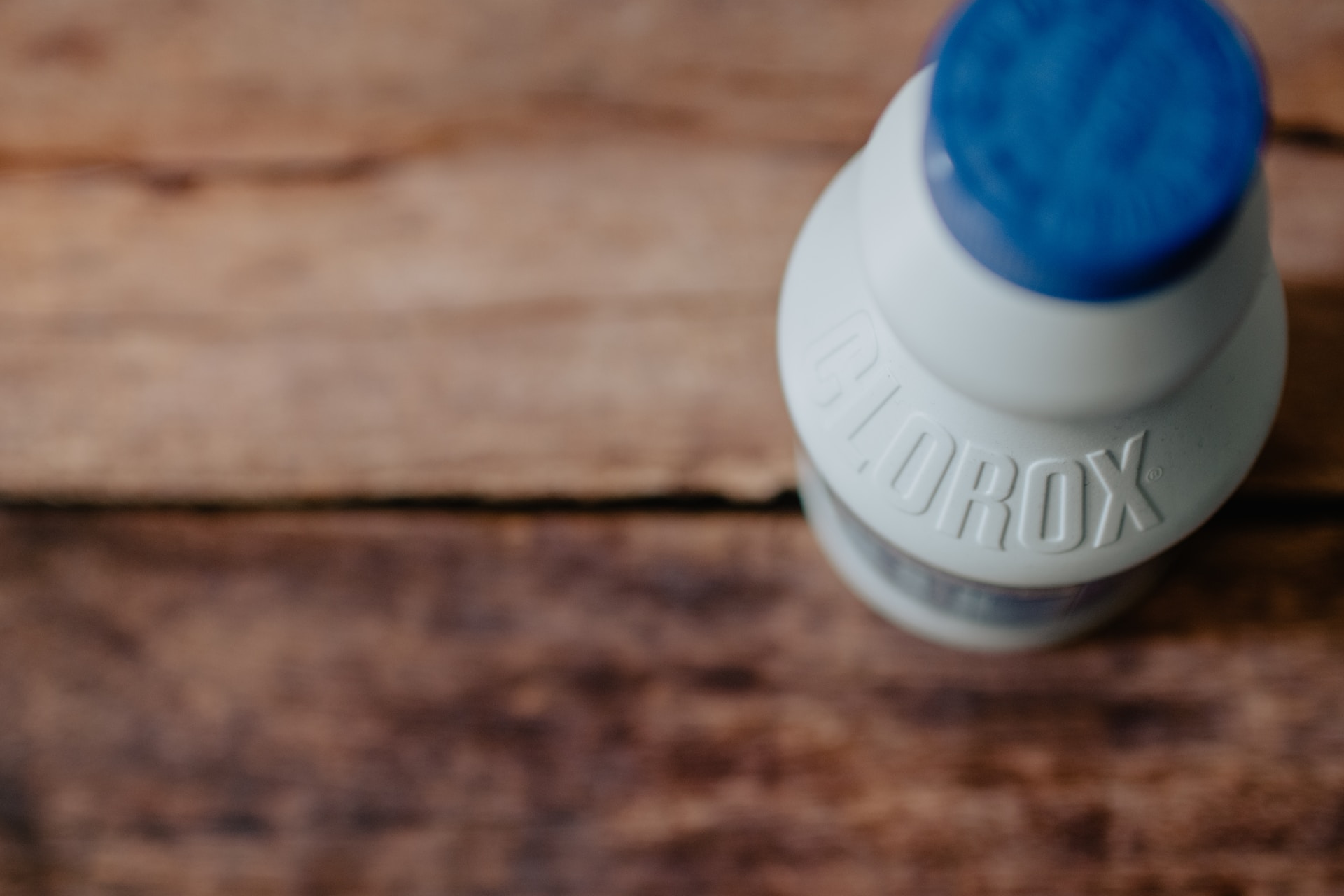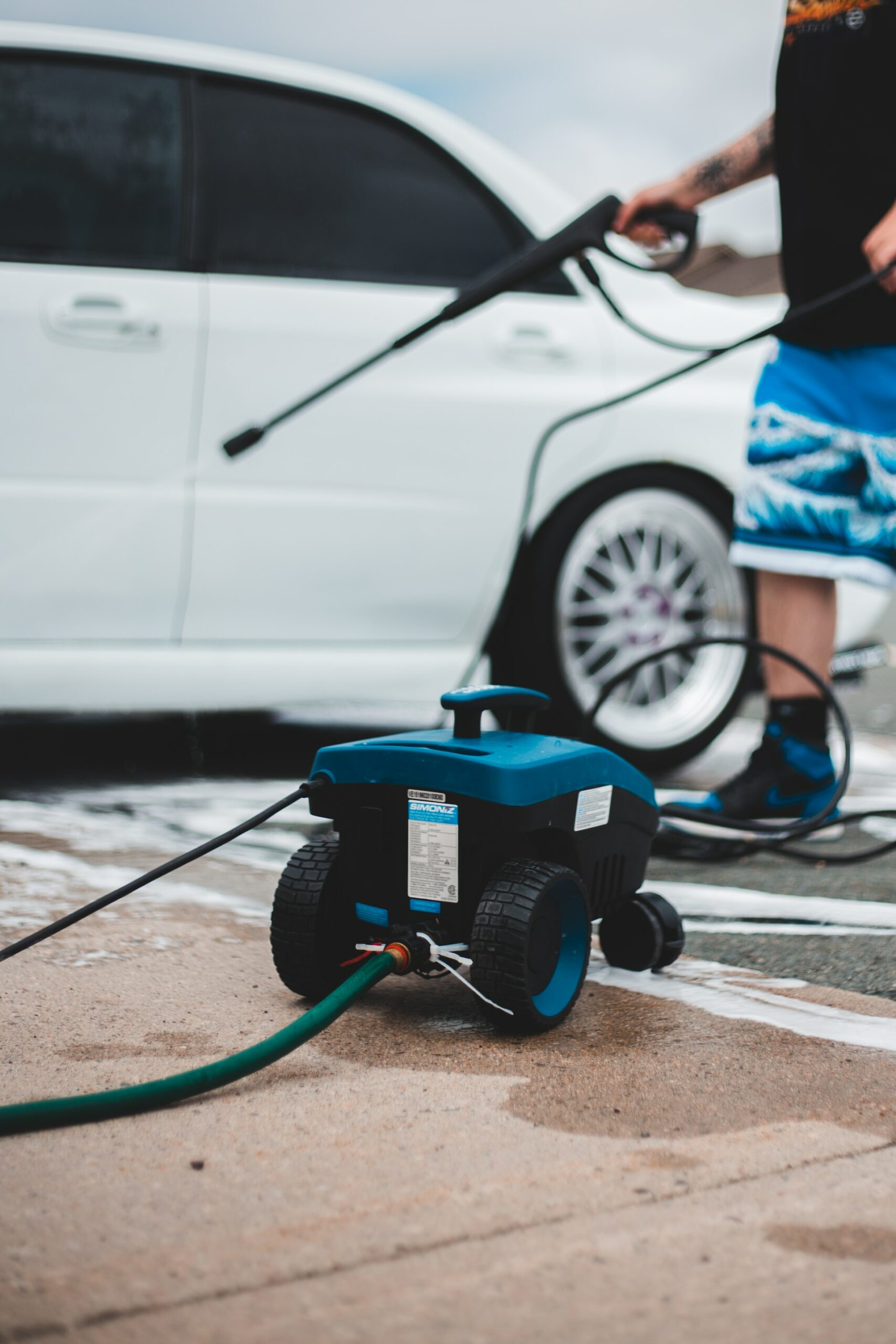Speaking from personal experience, I feel like most people have a weird relationship with bleach. They either love it and use it at every opportunity (oftentimes incorrectly), or they abhor it and avoid it at every possible turn. Forgive my smug sense of superiority, but neither camp is right.
Bleach is a tool to be used. You wouldn’t hammer a single nail with a sledgehammer, and you shouldn’t clean every dirty spot with bleach. When used correctly, bleach is a powerful cleaning agent that can revitalize old surfaces. But it can also cause permanent damage to yourself, others, and your property when used recklessly. Luckily it’s easy to learn how to use bleach responsibly.
Know the Risk
While a fantastic cleaning solution, bleach is not without its risk factors. The most pronounced danger is the health hazard. Bleach is a chemical that is extremely corrosive when left undiluted. This means that as it sits on a surface, it actively breaks it down. This property is what makes it such an excellent cleaning solution. It is also what makes it so dangerous to people.
Undiluted bleach on skin can rapidly cause burns. Inhalation of bleach can also burn your lungs. I feel like it goes without saying, but it’s also devastating to get in your eyes. “Wow, sounds way too dangerous for me to use then,” I hear you say. But not so fast.
True, bleach isn’t 100% safe. But there are precautions you can take which can get it very close to it. Gloves are a no-brainer, as are long sleeve shirts and pants. Goggles are also needed, as bleach has the potential to spray out unpredictably when pressure washed. Respirators and other masks aren’t a terrible idea but are generally unnecessary unless you are doing your deep breathing techniques over a barrel of bleach.
Before you use bleach though, always read the warning labels on the package. Different mixtures may have slightly different properties, so always follow the directions given. Moreover, don’t mix bleach with other cleaners ESPECIALLY ammonia.
Know Your Material
So you have all of your protective equipment, and you’re aware of the dangers of bleach to you. Good to go then, right? Not quite. Just as bleach is corrosive to you, it’s corrosive to any material it rests upon. The one you really got to watch out for in particular is metals.
The corrosive effects of bleach can react with metals, and leave ugly stains behind not to mention speed up the spread of rust. As such, I wouldn’t recommend using bleach on any metals just to be safe.
Plastics, on the other hand, are generally pretty safe to bleach. The caveat is that it shouldn’t sit for too long with bleach on it. Left long enough, bleach will begin to eat through your plastics, so monitor closely. Unfortunately, there are just too many types of materials to cover specifically in this article, but always research the material you’d like to use bleach on before use. A quick search can save you from an ugly, bleach-stained mess.
Know Your Technique
Due to the dangers to people, as well as your property, it goes without saying that we don’t want bleach spraying everywhere. The way you pressure wash bleach from a surface is paramount to your success. Luckily for you, it’s not complicated.
I’d recommend either a white or black spray tip. These tips provide the widest coverage, and the gentlest stream. This will ensure that the bleach is rinsed off in an orderly manner, instead of being shot off in different directions from a powerful rinse.
Just as well, if you are bleaching outdoor furniture it’s ideal to move it to an area with no plants around. It goes without saying that bleach can cause harm to plant life, so managing your bleach runoff is also important. Should any bleach happen to get in or on your plants, spray them down immediately with gentle water to prevent damage.
Bleach is a tool that can clean almost any surface. However, unless your idea of clean is “stripped of its top layer entirely,” I wouldn’t use bleach to clean everything. Its powerful effects do come with hefty drawbacks, but they are easily manageable. When used correctly, bleach can be an excellent tool to keep in your home. Bleach is one of the kings of outdoor cleaning for a reason after all.
The key to using bleach safely is being cognizant of the dangers associated with its use. If you can keep that in mind while using it, you will make out just fine. If the task seems daunting, don’t worry. We’re more than happy to take the burden off your shoulders and get your property looking brand new again. Give us a call, and we’d love to discuss options with you!


